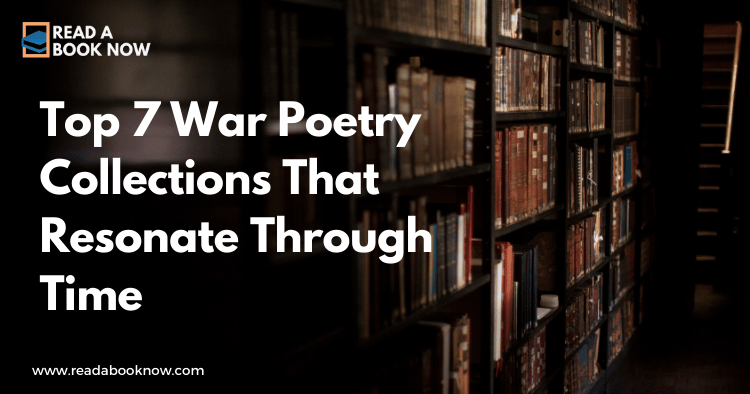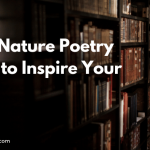Table of Contents
- Introduction
- 1. *The War Poems* by Wilfred Owen
- 2. *The Soldier* and Other Poems by Rupert Brooke
- 3. *The Complete Poems of Emily Dickinson*
- 4. *The Things They Carried* by Tim O’Brien
- 5. *The Poems of the First World War* edited by Tim Kendall
- 6. *War Poems* by Ted Hughes
- 7. *The Poetry of World War II* edited by David M. Rosen
- Conclusion
- FAQs
Introduction
War poetry holds a unique place in literature, capturing the raw emotions and experiences of those who lived through conflict. It serves as a powerful reminder of the sacrifices made and the horrors faced, transcending time and resonating with readers across generations. Whether you’re a seasoned poetry enthusiast or a curious newcomer, exploring these collections can deepen your understanding of the human experience during times of war. Here are seven war poetry collections that continue to resonate through time.
1. *The War Poems* by Wilfred Owen
Wilfred Owen is often regarded as one of the greatest war poets of the First World War. His collection, *The War Poems*, captures the grim realities of trench warfare and the psychological trauma soldiers endured. Through poignant imagery and innovative language, Owen’s work paints a haunting picture of the absurdity of war.
Key Themes
- The brutality of battle
- The loss of innocence
- The futility of war
Owen’s most famous poem, “Dulce et Decorum Est,” exemplifies his ability to convey the horrors faced by soldiers. His relentless exploration of the physical and emotional scars left by war invites readers to confront uncomfortable truths.
Read more about Wilfred Owen’s life and legacy here.
2. *The Soldier* and Other Poems by Rupert Brooke
Rupert Brooke’s collection, *The Soldier*, embodies the romanticized view of war prevalent at the outset of World War I. His eloquent verses celebrate patriotism and sacrifice, reflecting the sentiments of a generation that believed in the nobility of fighting for one’s country.
Key Themes
- Patriotism
- Idealism vs. reality
- The notion of sacrifice
Though Brooke’s poems are often seen as idealistic, they provide a contrast to the stark realism found in the works of Owen and others. His ability to evoke deep feelings about duty and honor continues to resonate with readers.
Discover more about Rupert Brooke and his poetry here.
3. *The Complete Poems of Emily Dickinson*
Although not a war poet in the traditional sense, Emily Dickinson’s body of work often grapples with themes of death, loss, and the human condition—concepts that resonate deeply in the context of war. Her succinct and powerful verses reflect a profound understanding of suffering and mortality.
Key Themes
- Death and mortality
- Isolation and despair
- The search for meaning
Dickinson’s poems, such as “I heard a Fly buzz—when I died,” can evoke the personal losses experienced by individuals during wartime, making her collection a poignant addition to the war poetry canon.
Learn more about Emily Dickinson’s influence on poetry here.
4. *The Things They Carried* by Tim O’Brien
Tim O’Brien’s *The Things They Carried* is a blend of memoir and fiction that explores the Vietnam War through a series of interconnected stories and poems. The collection delves into the physical and emotional burdens carried by soldiers, addressing themes of memory, trauma, and the complexities of courage.
Key Themes
- The weight of memory
- The impact of war on identity
- The blurred lines between truth and fiction
O’Brien’s narrative style, infused with poetic elements, allows readers to feel the weight of each soldier’s experience, making it a timeless exploration of war’s psychological toll.
Explore more about Tim O’Brien’s work and its significance here.
5. *The Poems of the First World War* edited by Tim Kendall
This anthology, edited by Tim Kendall, offers a comprehensive overview of poetry written during the First World War. It includes works from various poets, providing insights into the diverse experiences and emotions of soldiers.
Key Themes
- Collective memory
- Diverse perspectives on war
- The evolution of war poetry
By compiling various voices, Kendall helps readers appreciate the complexity of war experiences and the different ways poets have responded to the conflict. This collection serves as an essential resource for anyone interested in the broader scope of war poetry.
Find out more about this anthology and its contributors here.
6. War Poems by Ted Hughes
Ted Hughes, one of the most significant British poets of the 20th century, addresses themes of war and violence in his collection War Poems. His powerful imagery and intense language convey the harsh realities of conflict and its effects on nature and humanity.
Key Themes
- Nature and destruction
- Violence and masculinity
- The primal aspects of human existence
Hughes’s work often reflects on the interconnectedness of war and the natural world, offering a unique perspective on the impact of human conflict on the environment.
Learn more about Ted Hughes and his poetic approach here.
7. The Poetry of World War II edited by David M. Rosen
This anthology brings together a rich collection of poems from various authors, capturing the essence of World War II. Edited by David M. Rosen, it includes works from well-known poets as well as lesser-known voices, reflecting the global impact of the war.
Key Themes
- The global experience of war
- The human cost of conflict
- Resilience and hope amidst despair
Rosen’s collection offers a multifaceted view of World War II, showcasing the diversity of experiences and emotions that emerged during this tumultuous period.
Check out more about this anthology and its impact here.
Conclusion
The power of war poetry lies in its ability to articulate the inexpressible, providing a voice to those who have experienced the chaos of battle. These seven collections each offer unique perspectives that resonate through time, reminding us of the profound impact of war on individuals and society. Whether you seek to understand the past or connect with the emotional landscape of conflict, diving into these works will enrich your appreciation for the art of poetry.
FAQs
What is war poetry?
War poetry is a genre that captures the experiences, emotions, and realities of war. It often reflects the psychological and physical toll of conflict on soldiers and civilians alike.
Why is war poetry important?
War poetry serves as a historical record, providing insights into the experiences of those who lived through wars. It also fosters empathy and understanding by conveying the emotional realities of conflict.
Who are some other notable war poets?
In addition to Owen and Brooke, other notable war poets include Siegfried Sassoon, John McCrae, and Yusef Komunyakaa.
How can I start reading war poetry?
Begin with anthologies that compile various poets’ works, or focus on specific collections by renowned war poets. Many online resources, including Poetry Foundation, offer access to a wide range of poems and essays on war poetry.
By exploring these collections, you’ll gain insight into the human condition and the profound impacts of war that continue to resonate today. Happy reading!
Also Look For:
For further exploration of classic literature and its profound impact on society, consider these collections:
- Top 7 Ancient Classics Everyone Should Read Today
- 10 Must-Read 19th Century Classics for Every Book Lover
- 10 Timeless British Classics Everyone Should Read



